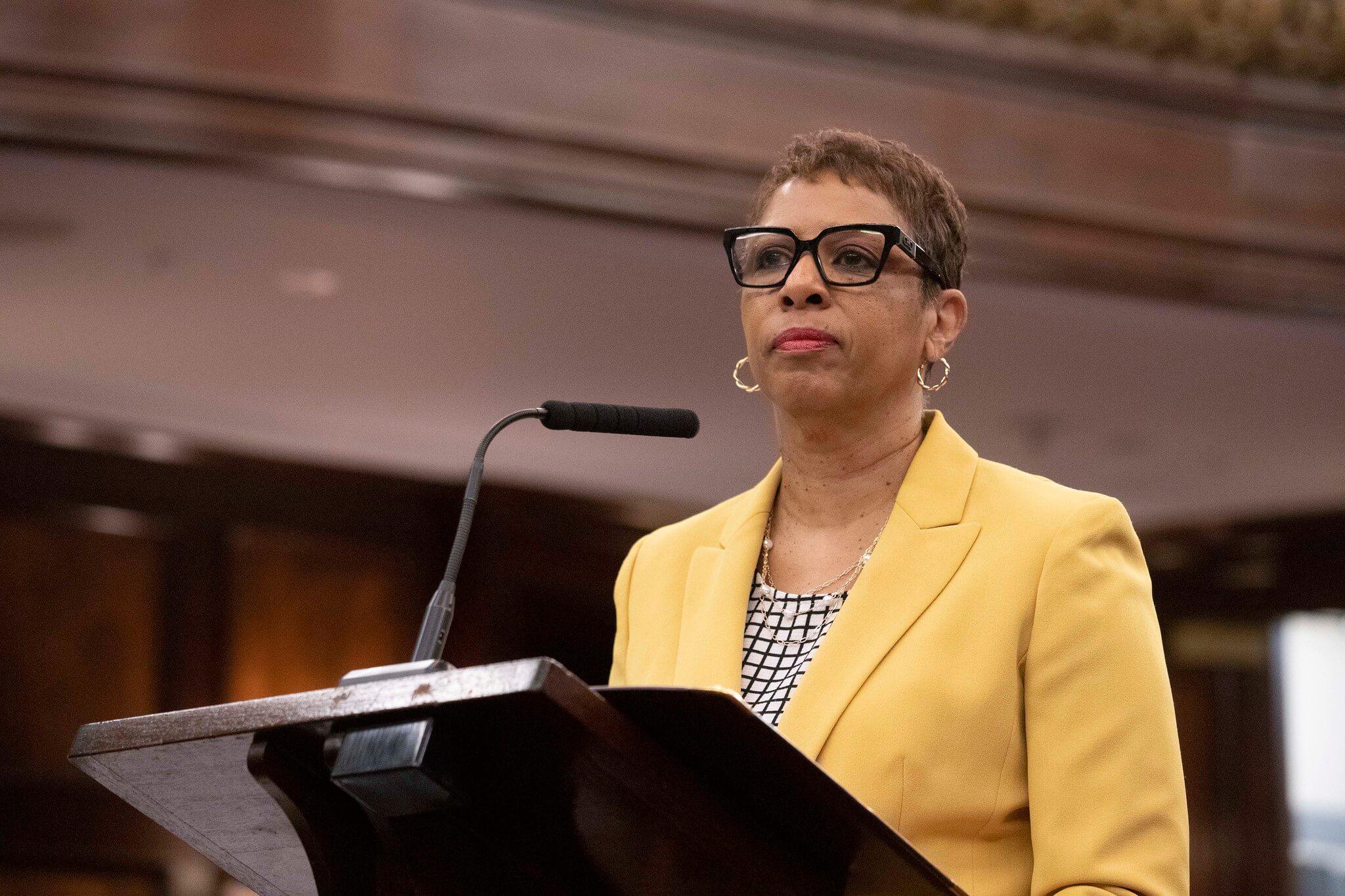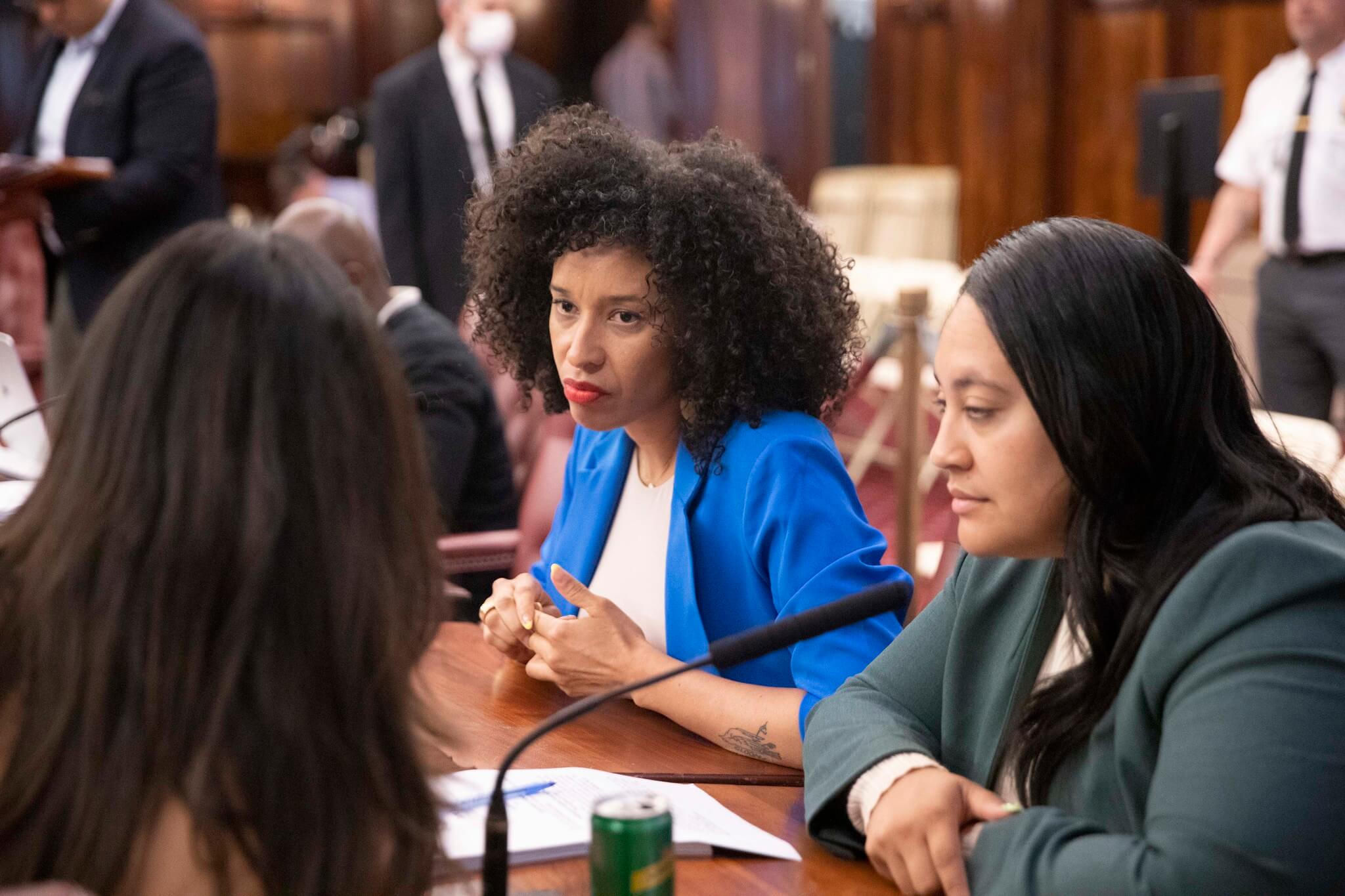Jun. 9, 2023 By Ethan Stark-Miller
The City Council wasted no time Thursday in overwhelmingly passing legislation that, if enacted, would mandate New Yorkers citywide to separate food scraps and other organic refuse from the rest of their trash.
But the mandatory program the bills would establish appears to be at odds with Mayor Eric Adams’ own voluntary citywide composting initiative announced earlier this year.
It will, however, be difficult for the mayor to block the council’s program from going through considering the bill passed 43-7 — well above the 35-vote threshold needed to override a mayoral veto. A City Hall spokesperson declined to say whether the mayor would seek to veto the bill.
In addition to organic waste, the council’s program would mandate people separate their yard waste — such as sticks and leaves — as well, according to a release.
The Department of Sanitation (DSNY) is tasked under the bill to develop and manage the mandatory food waste recycling program, set to begin this fall with a rollout in Brooklyn and Queens, followed next spring by the Bronx and Staten Island, and finally Manhattan by fall of 2024.
Should it become law, the legislation would also require the DSNY to conduct outreach and produce materials for educating the public on how to properly separate their organic and yard scraps from the rest of their trash.
The five-bill package that the City Council passed Thursday requires the city to hit a goal of zero organic or recyclable waste entering its landfills by 2030; annually report on those activities,; establish compost drop-off sites across the city; and open recycling centers in each borough.

Council Speaker Adrienne Adams.Credit John McCarten/NYC Council Media Unit
City Council Speaker Adrienne Adams, in a statement, said the legislation is a “critical step” toward making the Big Apple a more sustainable city as it prepares to deal with the negative impacts of climate change.
“With the passage of the Zero Waste Act, the New York City Council has taken a critical step forward to achieving the sustainable future New Yorkers deserve,” Speaker Adams said. “Through increased access to composting and recycling sites, all New Yorkers will now be able to participate more equitably in our collective goal of diverting all recyclables and organic waste from landfills and incinerators by 2023.”
Council Member Sandy Nurse (D-Brooklyn), who chairs the council’s Sanitation Committee, said the measures are an “act of solidarity” with low income people of color who live near places where waste is typically disposed of.
“The Zero Waste Act is a major environmental justice victory for New York City and beyond,” Nurse said, in a statement. “These bills are an act of solidarity with predominantly low-income and communities of color living near landfills and incinerators in New York, New Jersey, Pennsylvania – communities that are fighting to protect their land, air, and health – where we send our waste. After fighting for environmental justice for years as a grassroots activist, I’m proud to have led the charge in the Council for this package.”
During the June 8 meeting, Nurse said the package was the most co-sponsored to be passed by the council.

Council Member Sandy Nurse.Credit John McCarten/NYC Council Media Unit
Nurse was also quoted in a report from The New York Times, saying it didn’t matter whether or not the mayor opposes the compost bill, given that it was passed by a veto-proof majority.
“We have a supermajority on all of the bills,” Nurse said. “Whether or not the administration wants these bills to happen is irrelevant. They’re happening.”
A mayoral spokesperson, in a statement, didn’t weigh in on whether or not the mayor would veto the legislation — promoting instead City Hall’s own composting program.
“This administration took office promising to get compostable material out of the black bags and out of the landfills,” they said. “We designed a program that works for everyone – efficient and cost-effective. We’re expanding it to the entire city, and we’ve moved forward with a rule requiring leaf and yard waste be set out for composting rather than with the trash. We’re doubling down on what works, and appreciate that the City Council shares our commitment to fighting the rats and helping the planet.”